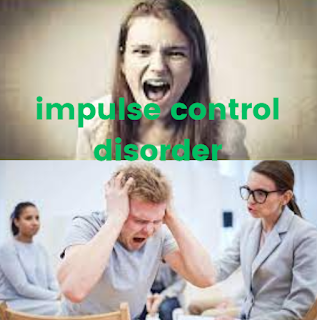Conquer Your Impulses: 5 Practical Strategies for Overcoming Impulse Control Disorder
Conquer Your Impulses: 5 Practical Strategies for Overcoming Impulse Control Disorder
Introduction
Impulse Control Disorder (ICD) is a condition characterized by the inability to resist impulses, urges, or temptations that may be harmful to oneself or others. It can manifest in various forms, such as excessive gambling, binge eating, or reckless behavior. Managing these impulses is crucial for maintaining a balanced and fulfilling life,What are the 5 impulse control disorders?,What are 3 signs symptoms of impulse control disorder?,How do you fix bad impulse control?,What are the 4 types of impulsivity?,Is ADHD an impulse control?,Do I have poor impulse control?,Can impulse control disorder be cured?,At what age does impulse control develop?,Why is my 7 year old so impulsive?,How do you know if you are impulsive?.
Understanding Impulse Control Disorder
ICD is marked by impulsive behaviors that are often repetitive and difficult to control. Individuals with ICD may experience intense feelings of tension or excitement before engaging in impulsive acts, followed by feelings of guilt or remorse afterward. Factors such as genetics, brain chemistry, and environmental influences can contribute to the development of ICD.
The Impact of Impulse Control Disorder
ICD can have profound effects on both personal and professional life. Relationships may suffer due to impulsive actions, leading to conflicts and misunderstandings. In the workplace, impulsive behavior can result in poor decision-making and reduced productivity. Moreover, untreated ICD may escalate to more severe consequences, including legal issues or financial ruin.
Five Practical Strategies for Overcoming Impulse Control Disorder
Cognitive Behavioral Therapy (CBT)
CBT is a therapeutic approach aimed at identifying and challenging negative thought patterns and behaviors. Through CBT, individuals can learn coping strategies to manage impulses effectively. Techniques such as cognitive restructuring and behavioral rehearsal help individuals develop healthier responses to triggers.
Mindfulness and Meditation Techniques
Practicing mindfulness and meditation can enhance self-awareness and self-regulation, key components in overcoming ICD. By cultivating mindfulness, individuals can observe their impulses without judgment, allowing them to respond thoughtfully rather than react impulsively. Regular meditation practice also promotes relaxation and stress reduction, reducing the likelihood of impulsive behavior.
Developing Healthy Coping Mechanisms
Finding alternative ways to cope with stress and emotions is essential for managing impulses. Engaging in activities such as exercise, hobbies, or creative outlets provides healthy outlets for pent-up energy and emotions. Learning to recognize triggers and implementing pre-planned coping strategies can help individuals navigate challenging situations without succumbing to impulsivity.
Setting Clear Goals and Boundaries
Setting specific, achievable goals can provide direction and motivation for individuals struggling with ICD. By breaking down larger objectives into smaller, manageable tasks, individuals can track their progress and celebrate milestones along the way. Establishing clear boundaries and limits also helps in avoiding situations that may trigger impulsive behavior.
Seeking Professional Help and Support
In some cases, overcoming ICD may require professional intervention. Therapists, counselors, or support groups can offer guidance and encouragement on the journey to recovery. Seeking help is a sign of strength, and reaching out to trusted professionals can provide valuable insights and strategies for managing impulses effectively.
Implementing Strategies in Daily Life
Incorporating these strategies into daily life requires commitment and practice. Start by identifying specific areas where impulsivity is most problematic, then choose one or two strategies to focus on initially. Consistency is key, so make an effort to integrate these techniques into your routine consistently. Remember, progress may be gradual, but each step forward brings you closer to conquering your impulses.
Measuring Progress and Celebrating Success
Tracking your progress is essential for staying motivated and assessing the effectiveness of your chosen strategies. Keep a journal to record your thoughts, feelings, and behaviors related to impulsivity. Celebrate small victories along the way, whether it's resisting an impulse or successfully employing a coping mechanism. Recognize that overcoming ICD is a journey, and every effort counts towards your ultimate goal.
Conclusion
Conquering impulse control disorder is achievable with the right strategies and support. By understanding the nature of ICD, implementing practical techniques, and seeking help when needed, individuals can regain control over their impulses and lead healthier, more fulfilling lives.
FAQs (Frequently Asked Questions)
What are some common signs of impulse control disorder?
Signs of ICD may include repeated engagement in risky behaviors, difficulty maintaining relationships, and a lack of regard for consequences.
Is impulse control disorder treatable?
Yes, ICD is treatable with various therapeutic approaches, including cognitive behavioral therapy, medication, and support groups.
Can mindfulness help with impulse control?
Yes, practicing mindfulness can improve self-awareness and self-regulation, making it easier to manage impulses effectively.
Are there any medications available for treating impulse control disorder?
While there are medications that may help alleviate symptoms of ICD, they are typically used in conjunction with therapy and lifestyle changes.
How long does it take to overcome impulse control disorder?
The duration of treatment varies for each individual, depending on factors such as severity of symptoms, adherence to treatment, and personal resilience.


ليست هناك تعليقات: